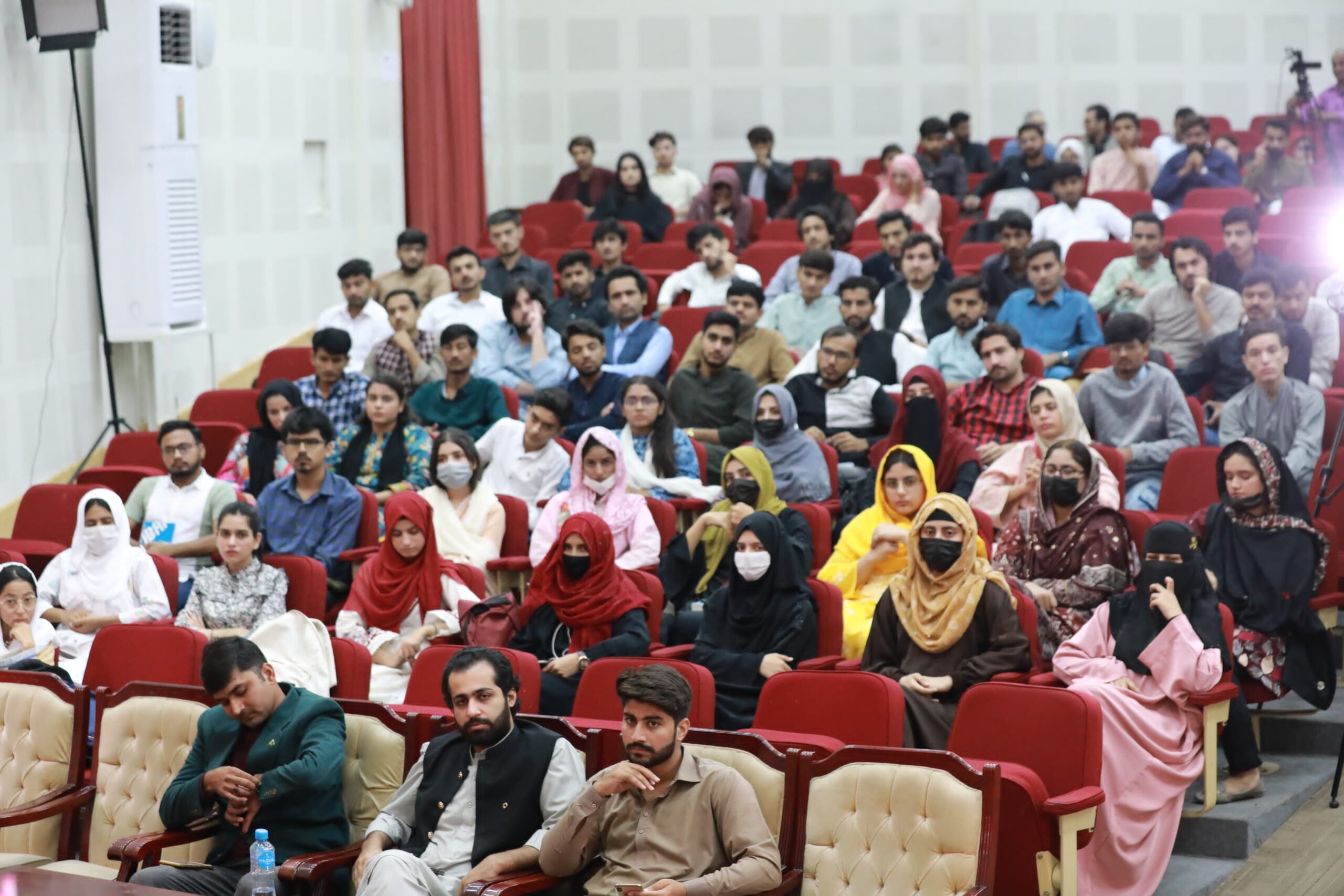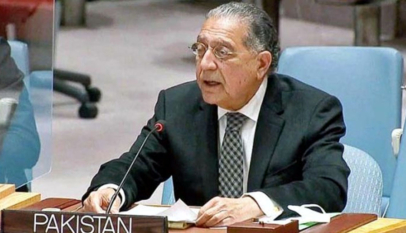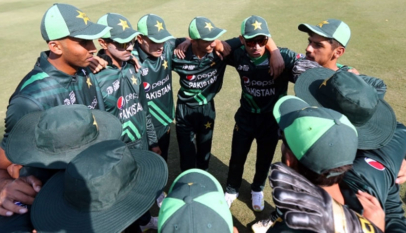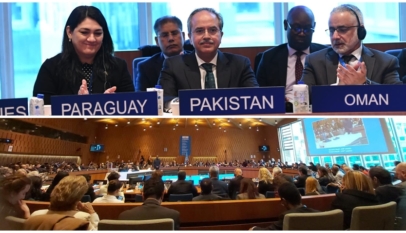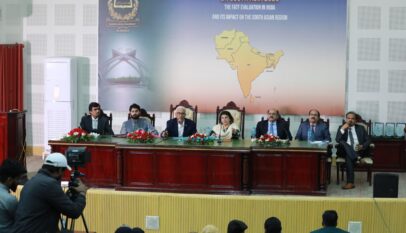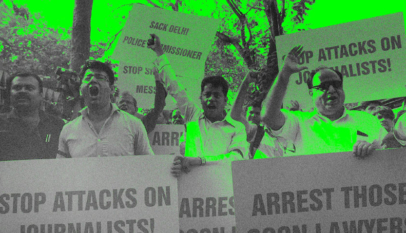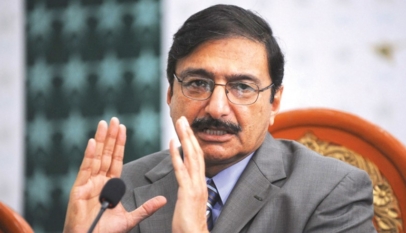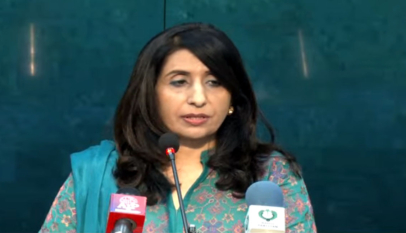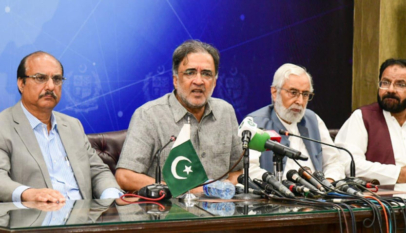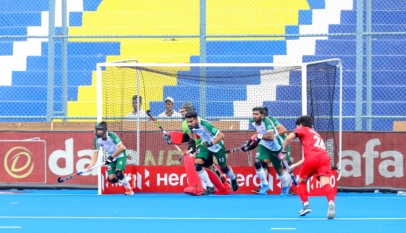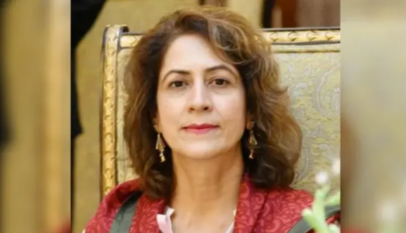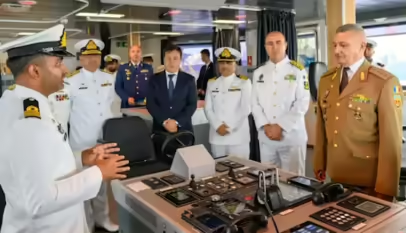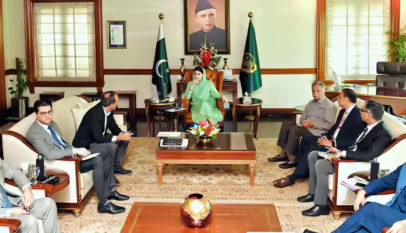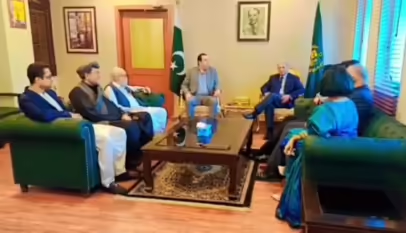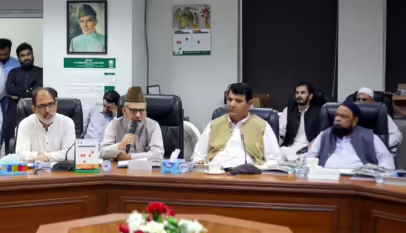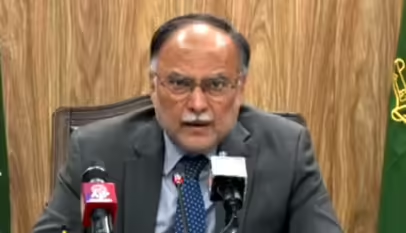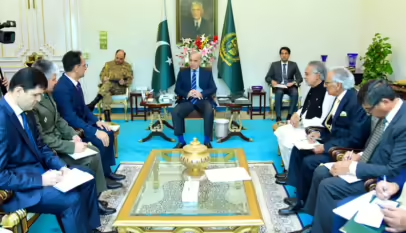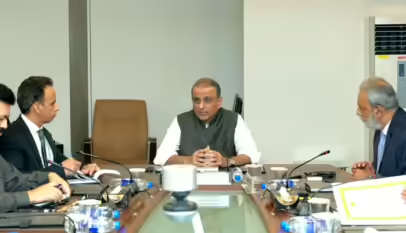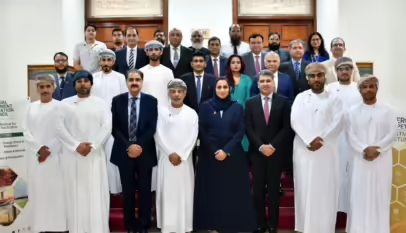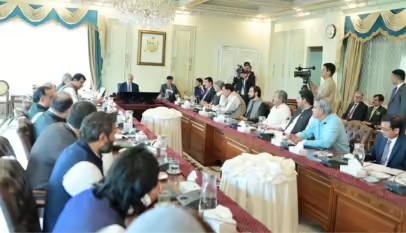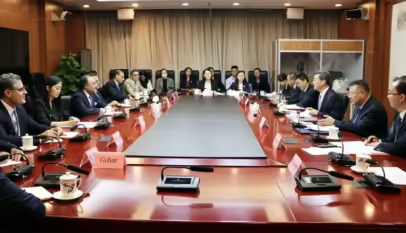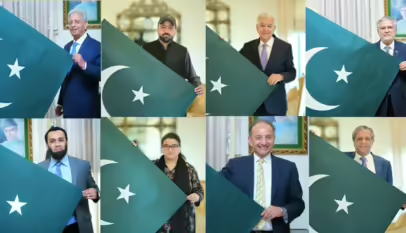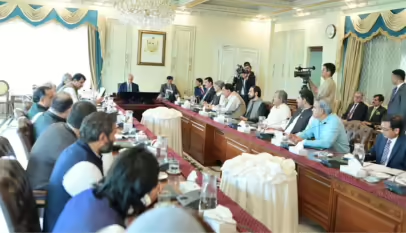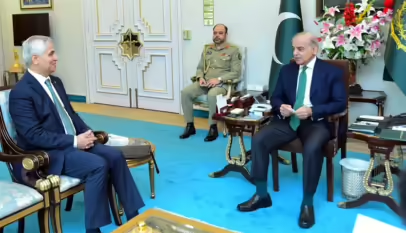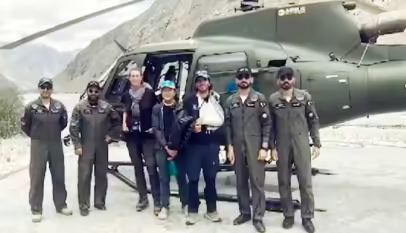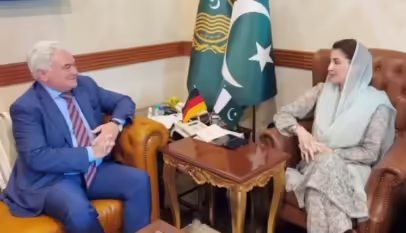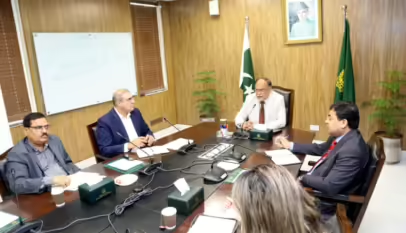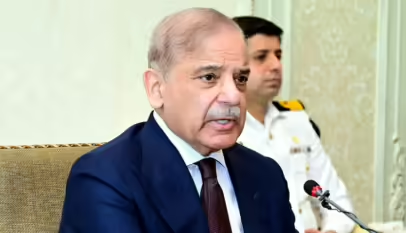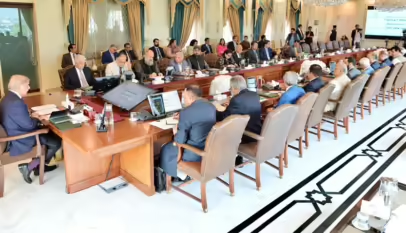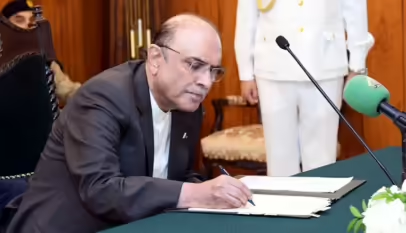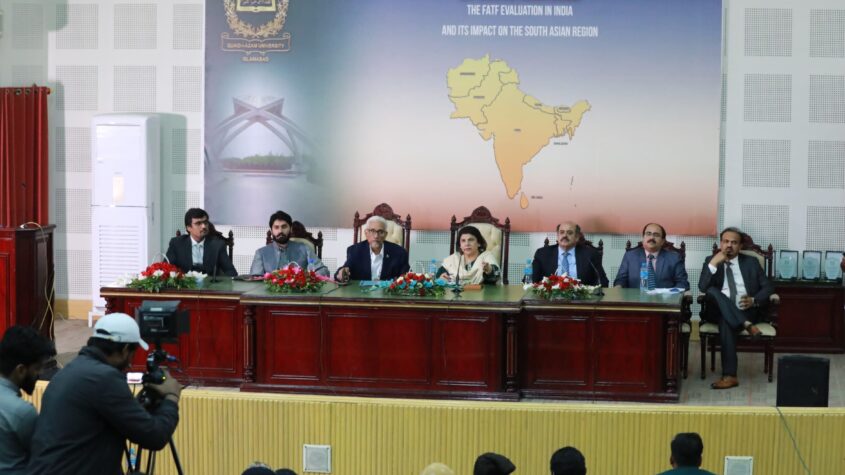
In a remarkable display of academic collaboration and global engagement, the seminar “Unveiling the Future – FATF’s Impact on South Asia 2023” marked a significant milestone. The event, a part of the “Universities Outreach – Phase 1,” brought together an array of esteemed speakers who delved into the multifaceted challenges and implications surrounding India’s involvement with drugs mafia, illegal weapons, and FATF’s in-depth queries regarding black money.
The speakers including cabinet members, academicians and intelligentsia on Wednesday highlighting a “strong” nexus between crime and Indian politics, called for strict scrutiny of India’s involvement in state-terrorism, drug trade and illegal weapons to avert adverse impacts on the stability of South Asian region.
They were addressing a seminar titled “Unveiling the Future-FATF’s Impact on South Asia 2023,” held by the Quaid-e-Azam University ahead of the on-site evaluation of India by the Financial Action Task Force scheduled in November.
The event, organized by the QAU’s School of Politics and International Relations, was a part of the “Universities Outreach – Phase 1,” which brought together an array of noted speakers who delved into the multifaceted challenges and implications surrounding India’s involvement with drugs mafia, illegal weapons, and FATF’s in-depth queries regarding black money.
Citing examples of Indian-sponsored state terrorism through its operative Kulbhushan Jadhav in Pakistan and the murder of Canadian Sikh leader Hardeep Singh Nijjar in Canada, the speakers drew FATF’s attention, unanimously believing that India’s links to the crimes should be confronted forcefully which otherwise could imperil regional peace.
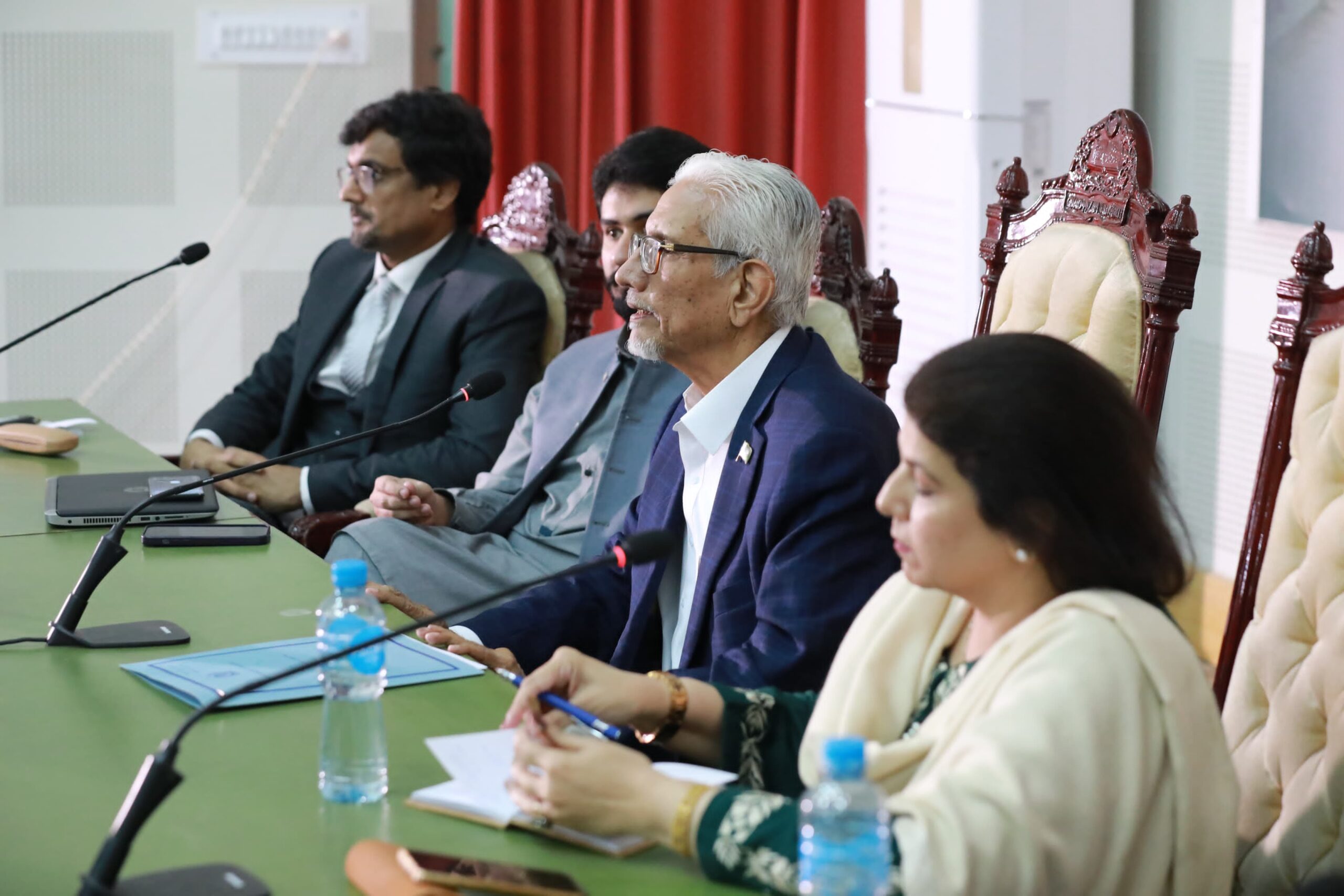
In his address, Advisor to Prime Minister on Finance Dr Waqar Masood said India was indulged in massive financial irregularities, criminal activities and sponsoring cross-border terrorism.
“Mumbai [a densely populated city on India’s west coast and considered a financial center] is operating as a hub of bookies in the world,” he added.
Dr Waqar said Pakistan had met all the 27 conditions imposed by the FATF, while contrary to it India had yet to respond to 330 queries asked by the international financial watchdog. “If India [after the FATF review] is put under the enhanced supervision or in the grey list; it will be earthshaking for India,” he added.
He said the FATF India’s review was due in 2019 but it was delayed because of COVID-19 restrictions.
The advisor said the task force had raised 330 questions to India about its financial regulatory regime, comparing only 27 questions to Pakistan and the latter had taken all required action to strengthen anti-money and counter-terror refinancing as per FATF’s standards on AML and TFC by Pakistan.
He said that there was a strong nexus between crime and Indian politics and as per Indian parliamentarian Arvind Kejriwal, the Indian industrialist Gautam Adani with around $180 billion net worth was the front man of Indian Prime Minister Narendra Modi.
Professor Dr Baqir Malik of MIT (USA) said, “The FATF’s examination of India’s shadowy financial activities is of paramount importance. India’s links to the drug trade and the proliferation of illegal weapons have cast a dark shadow. We must address these concerns and work collaboratively towards a more transparent financial ecosystem.”
Dr Fateh Din B. Mahmood, National Consultant in Cybercrimes and Forensics for the UNODC said, “The underworld’s involvement in drug trafficking is a complex web of cybercrimes and illicit financial transactions. To combat this, international cooperation and robust cybercrime forensics are crucial.”
Dr Zafar Nawaz Jaspal, Head of the QAU’s School of Politics and International Relations said India’s financial activities were under intense scrutiny, and “it is the time to confront the issues head-on. The questions raised by FATF regarding black money demand comprehensive answers, and they impact the stability of the entire South Asian region.”
Kamran Saeed Usmani, Advisor to PM Pakistan for Youth Affairs & President of All Parties Youth Wing, Central Youth President PMLQ said, “We cannot ignore the social and political consequences of India’s involvement in the drug trade and the circulation of illegal weapons. These issues affect the youth and the broader political landscape.”
Baker Younis, Bureau Chief at Pakistan Almayadeen, Beirut, said the global media has a vital role in shedding light on the implications of India’s actions and the FATF’s inquiries. “It’s our responsibility to ensure these issues are not swept under the rug.”
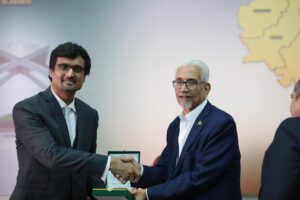
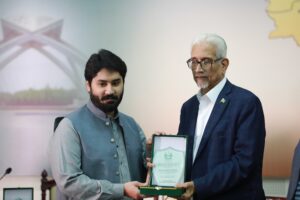
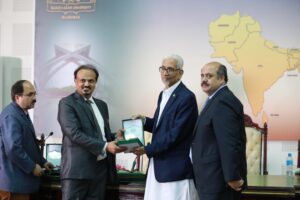
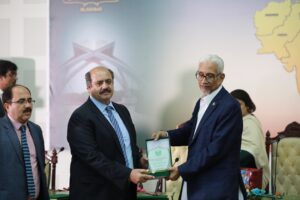
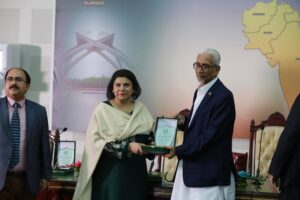
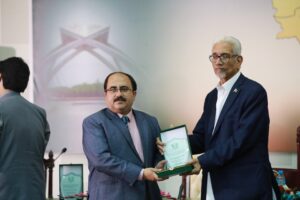
The seminar, which drew attention from scholars, students, and international journalists, emphasized the need for a collaborative approach to address these pressing concerns. It is evident that India’s role in the drug trade, illegal weapons circulation, and the queries from FATF about black money are topics that warrant continued discussion on the global stage.
